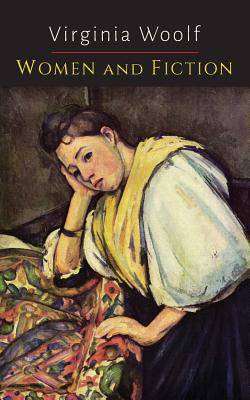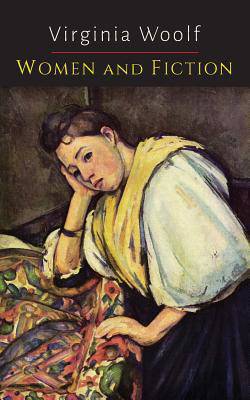
Bedankt voor het vertrouwen het afgelopen jaar! Om jou te bedanken bieden we GRATIS verzending (in België) aan op alles gedurende de hele maand januari.
- Afhalen na 1 uur in een winkel met voorraad
- In januari gratis thuislevering in België
- Ruim aanbod met 7 miljoen producten
Bedankt voor het vertrouwen het afgelopen jaar! Om jou te bedanken bieden we GRATIS verzending (in België) aan op alles gedurende de hele maand januari.
- Afhalen na 1 uur in een winkel met voorraad
- In januari gratis thuislevering in België
- Ruim aanbod met 7 miljoen producten
Zoeken
Omschrijving
2015 Reprint of 1960 Edition. Full Facsimile of the original edition. "Women and Fiction" was first published in the U.S. in Forum Magazine, a prominent literary journal of the 1920's It is the principle essay and title of a series of lectures Woolff delivered at Newnham College and Girton College, two women's colleges at Cambridge University in October 1928. This essay and the Lectures would eventually be published as "A Room of One's Own" in 1929. In this essay Woolf traces the reasons for the very limited achievements among women novelists through the centuries. Why did they fail? They failed because they were not financially independent; they failed because they were not intellectually free; they failed because they were denied the fullest worldly experience. Mrs. Woolf imagines what would have happened to a hypothetical sister of Shakespeare (who possessed all his genius) because she lived in the eighteenth century; she insists that, whatever her gifts, no woman in that age of wife-beating could have written the plays. She shows what did happen in the nineteenth century to the Brontes and George Eliot because they lacked full participation in life; even George Eliot, the "emancipated" woman, lived with a man prosaically in St. John's Wood, while Tolstoy roamed the world and lived with gypsies; and "War and Peace" was as impossible for a woman to write then as "Lear" three centuries before. This short essays remains an important feminist text.
Specificaties
Betrokkenen
- Auteur(s):
- Uitgeverij:
Inhoud
- Aantal bladzijden:
- 26
- Taal:
- Engels
Eigenschappen
- Productcode (EAN):
- 9781614278214
- Verschijningsdatum:
- 8/06/2015
- Uitvoering:
- Paperback
- Formaat:
- Trade paperback (VS)
- Afmetingen:
- 127 mm x 203 mm
- Gewicht:
- 36 g

Alleen bij Standaard Boekhandel
+ 16 punten op je klantenkaart van Standaard Boekhandel
Beoordelingen
We publiceren alleen reviews die voldoen aan de voorwaarden voor reviews. Bekijk onze voorwaarden voor reviews.









